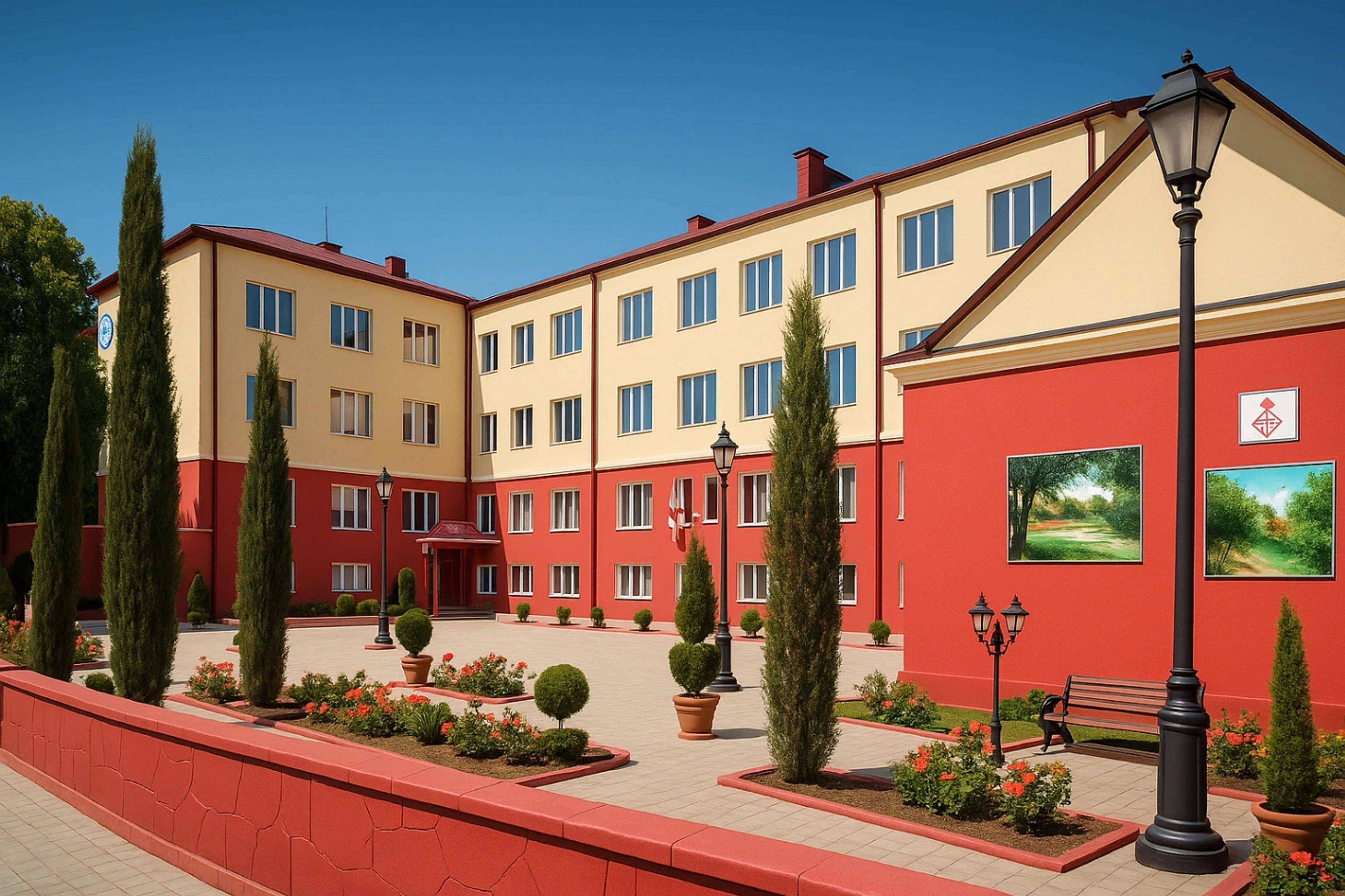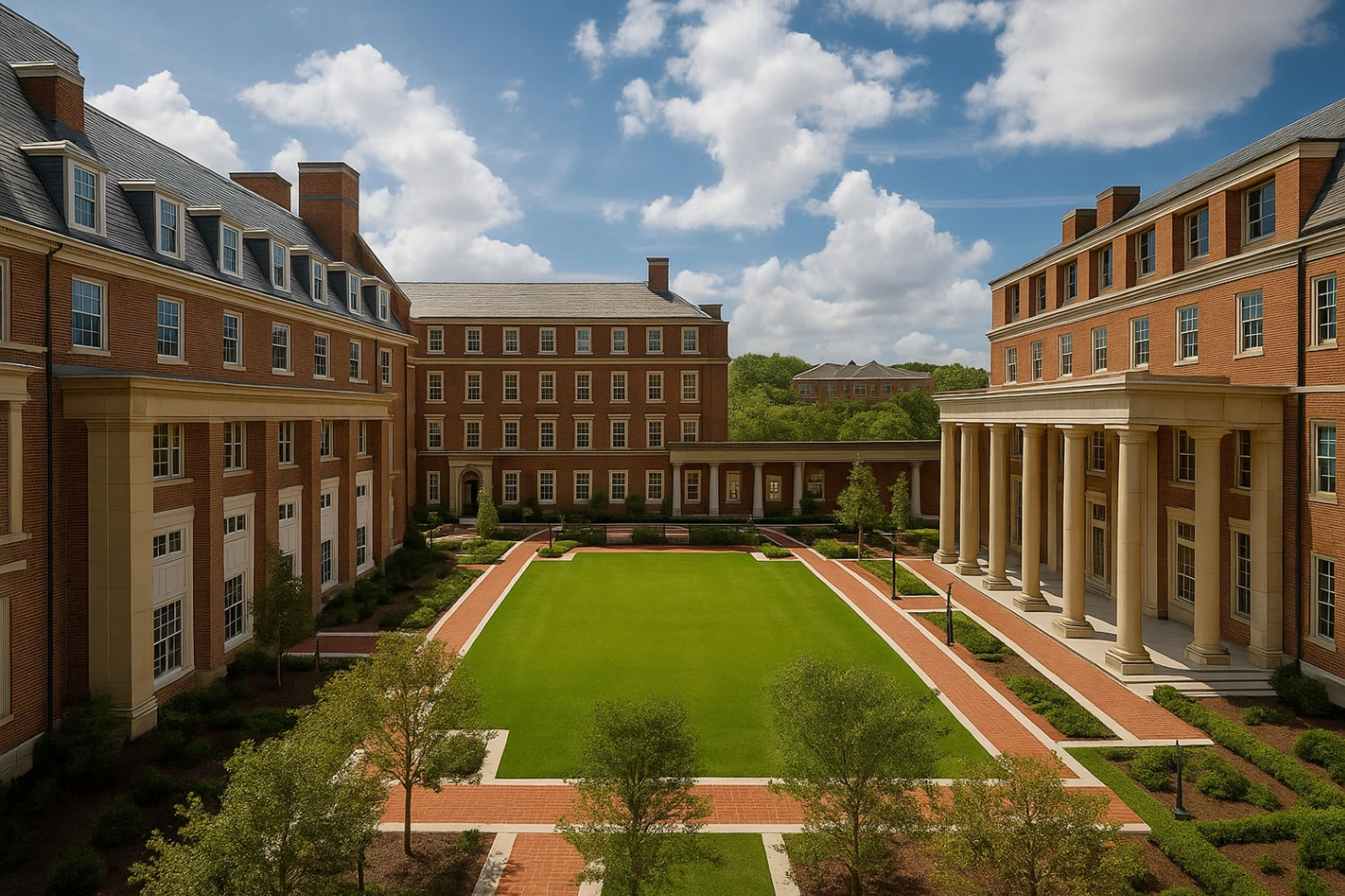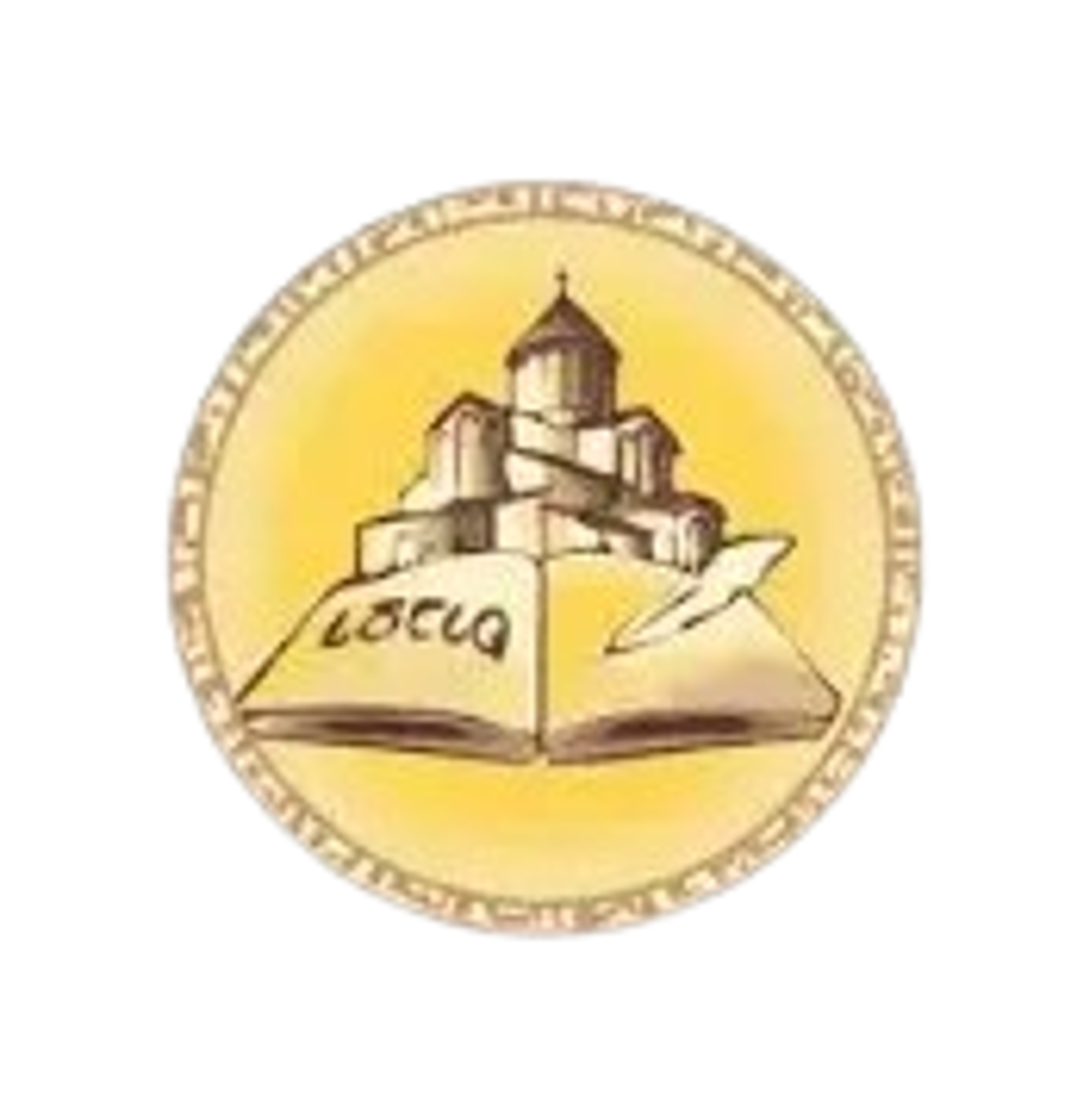David Agmashenebeli University of Georgia, Georgia: Admission 2025, Fees, Course, Placement
Tbilisi, Georgia • Private
David Agmashenebeli University Of Georgia
Overview
David Agmashenebeli University of Georgia was established in 1991. David Agmashenebeli University of Georgia is one of the top choices among students to pursue MBBS in Georgia and is accredited by NMC, WHO, WFME, ECFMG, FAIMER, & MCC. TNU MBBS annual tuition fee is $4,100. As per uniRank, it is ranked 33 (Country) & 10741 (globally). David Agmashenebeli University of Georgia currently has 932 students enrolled in Bachelor's, Master's, and PhD programs. The university also has 133 academic and 84 invited staff. The David Agmashenebeli University of Georgia admission 2025 is expected to begin in September.
David Agmashenebeli University Of Georgia: Quick Highlights
Here is a quick overview of David Agmashenebeli University of Georgia:
Particular | Details |
University Type | Private |
Established in | 1991 |
Location | Georgia |
Intake for MBBS Course | September |
NEET Examination | Yes |
Eligibility Criteria for MBBS | 12th standard with PCB as a compulsory subject |
Annual Tuition Fees | $4,100 |
Duration of MBBS Course | 6 years (including Internship) |
University Ranking (uniRank) | Country Rank - 33 |
Medium of Teaching | English |
Recognition | NMC, WHO, Georgian Ministry, AMSE, AMEE, ECFMG |
Official Website |
Why Study MBBS at David Agmashenebeli University Of Georgia?
The David Agmashenebeli University of Georgia provides the following benefits to applicants for admission to MBBS programs:
- The staff of the university use the newest technology for teaching and the newest Manuals, USA Medical Textbooks, and other aids.
- David Agmashenebeli University guarantees its students to pass the NMC and all international tests.
- Students will have all the sound and required knowledge of the medical field.
- The David Agmashenebeli University has two intakes, February and September.
- The university has Indian food easily available for students.
- The university has amazing infrastructure and hostel facilities.
- It is one of the top medical universities in the world, which is NMC-approved too.
- The university has highly qualified staff who provide quality education.
- The David Agmashenebeli University of Georgia MBBS program is completely taught in English.
David Agmashenebeli University Of Georgia: Ranking
According to UniRank, the country & world ranking of David Agmashenebeli University of Georgia is:
Country | World |
33 | 10741 |
David Agmashenebeli University Of Georgia: Recognition & Accreditation
David Agmashenebeli University of Georgia is recognized by:
- National Medical Council (NMC)
- World Health Education (WHO)
- Georgian Ministry of Health
- National Centre of Education Quality Enhancement
- Association of Medical School in Europe (AMSE)
- Association of Medical Education in Europe (AMEE)
- Education Commission for Foreign Medical Graduates (ECFMG)
David Agmashenebeli University Of Georgia: Course Duration
The 6-year MBBS program at David Agmashenebeli University of Georgia covers both theoretical education and clinical experience. The course is divided into two phases, phase 1 is 5 years of degree, and next comes 1 year of internship to give students practical experience.
David Agmashenebeli University Of Georgia: Medium of Teaching
The primary medium of teaching at David Agmashenebeli University of Georgia is English.
David Agmashenebeli University Of Georgia
Fee Structure
David Agmashenebeli University of Georgia MBBS fees structure 2025 is now live. The annual David Agmashenebeli University of Georgia fee for MBBS course is $4,100. The table below shows the detailed fee structure of the university.
David Agmashenebeli University Of Georgia MBBS Fee | Fee in USD |
Tuition Fee | $4,100 |
Hostel Fee | $1,000 |
MBBS
David Agmashenebeli University Of Georgia
Admission Process
The David Agmashenebeli University of Georgia admission 2025 is expected to begin in July this year and end by September. To apply for an MBBS student in Georgia 2025, you must first fill out the application form at David Agmashenebeli University of Georgia, available on its official website, or submit the application form via a consultant. The next step is to attach the required documents and submit the MBBS program application. Then, after receiving your admission letter, you may apply for a visa by submitting the required documents. Finally, you need to travel to Georgia to continue your medical journey.
David Agmashenebeli University Of Georgia: Eligibility Criteria
The following is the David Agmashenebeli University of Georgia's eligibility criteria for admissions 2025:
- A general category student must have scored at least 50% marks in PCB subjects in 10+2.
- Students belonging to the reserved category must have at least 40% marks in PCB subjects in 10+2.
- The age of the student must be at least 17 years or above on or before 31st December in the admission year.
- Students must appear in the NEET 2025 Exam.
David Agmashenebeli University Of Georgia: Documents Required
The following documents are required to secure admission to David Agmashenebeli University of Georgia.
- Birth Certificate (in English)
- Marksheet of 10th (SSLC) and certificates
- Marksheets of the 11th and 12th, and certificates
- Passport-size photos
- Original Passport (Minimum 2 years of validity)
- Filled Application Form
- Scorecard of NEET (if opted)
- Letter of Recommendation
- Language Proficiency certificate
- Statement of Purpose
- Health certificate
- No Criminal Certificate
- An affidavit from the parents or the guardian
- Bank statement of parent/guardian for the period of the last 6 months showing a balance of at least Rs. 3,00,000
David Agmashenebeli University Of Georgia
Faculty
David Agmashenebeli University Of Georgia
Hostel
David Agmashenebeli University of Georgia offers neat and clean hostel accommodations. The facilities available in the in-house hostels of David Agmashenebeli University of Georgia are.
- Students are provided with several sharing options.
- The hostels are furnished with basic amenities.
- The rooms are highly hygienic.
- The students are also provided with an option to reside off campus.




